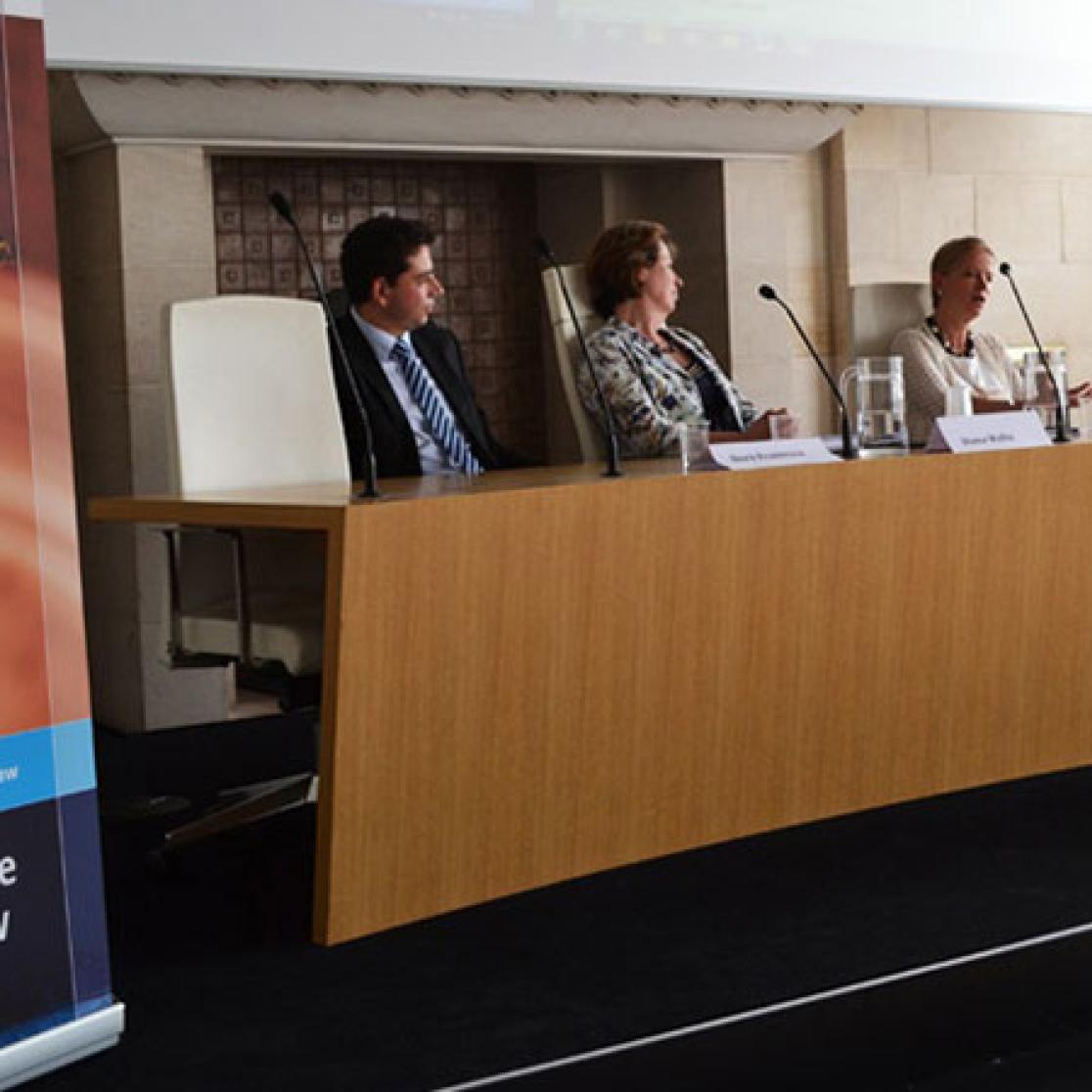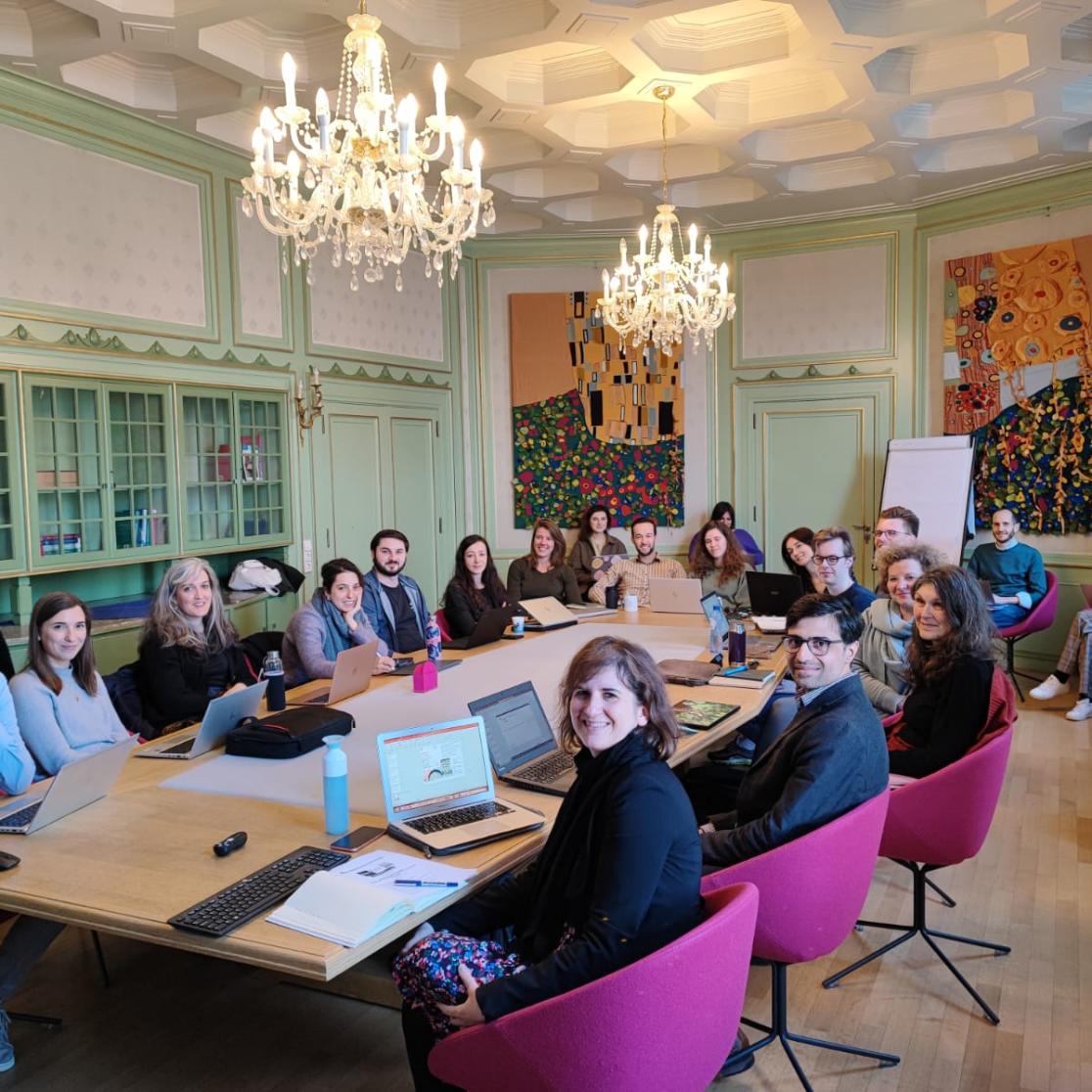MCEL Research
The Maastricht Centre for European Law seeks to combine more traditional research areas of the EU legal order with new and recently emerging topics, such as the role of the EU law with regard to science and new technologies.
In this manner it focuses on five research themes:
MCEL Research lines
MCEL aims to contribute to both the theoretical as well as the practical developments in the EU legal order.






The rule of law and fundamental rights
MCEL’s research line The Rule of Law and Fundamental Rights falls under the Faculty’s research stream Values. The main focus of this research line is the ever-developing constitutional law of the European Union. Research at MCEL in this research line deals with the disregard of the rule of law and the problem of independence of the judiciary by various countries in the EU, such as Poland and Hungary (Bonelli, Claes). In the framework of the research on constitutional aspects of the EU legal order, special attention is given to the protection of fundamental rights in the EU, in particular to the Union’s anti-discrimination policy (Brkan, Broderick, Claes, De Witte, Imamovic, Waddington); and the protection of the environment in EU substantive and procedural law (Peeters and Eliantonio).
-----------------------------------------------------------
Research line 2
European integration and globalisation
MCEL’s research line European Integration and Globalisation corresponds to the Faculty’s research stream Institutions. Within this research line, MCEL covers most of the institutional law of the European Union, as well as the relation between EU law, international law and national law. The question of the interplay between the EU and national law is multi-faceted. Within this research area, MCEL scholars study the relationship and the interaction between national and European actors as well as questions of legitimacy and democratic accountability in the context of the multi-level constitution of Europe. Close attention goes to the issues of national constitutional identities of Member States, to the way in which national legal systems react to the EU law doctrines of primacy and direct effect, the way in which the EU seeks to ensure respect of common European values in all its Member States and the relation between EU law and national constitutional law (Claes, Bonelli, Heringa, Van der Sluis) as well as the influence of European integration on national social and labour law (Klosse, Meyer, Van der Mei).
MCEL also studies the EU’s principle of institutional balance and examines issues of competences (Chamon, De Witte, Vos). The Centre has an ongoing interest in questions of flexibility and differentiation between the Member States in the evolution of EU law, in particular in the context of the Eurozone (De Witte, Ott, Vos). Moreover, the research at the Centre focuses on the institutional transformations brought about by the development of new modes of governance and regulation. These methods have both challenged the traditional hierarchical structure of EU law and provided new roles for institutions such as courts and parliaments. MCEL scholars thus study the role of national parliaments in the European integration process (Fromage, Nguyen). Several members of MCEL also deal with the interaction in administrative law, with an emphasis on the challenges for accountability and judicial protection raised by the development of EU/national shared administration, in particular due to the expansion of the role of EU agencies, and the increasing resort to soft law (Athanasiadou, Chamon, Eliantonio, Ott, Volpato, Vos).
Another focus within this research area is the external action of the EU. The research carried out at the Centre aims to contribute to the study of the EU in a global setting by analysing the fundamental principles of EU external relations, and the role of the institutions involved in it, but also by focusing on EU enlargement and European neighbourhood policy and tackling new governance structures in EU external relations law. The research pays special attention to questions of coherence between different fields of EU external relations as well as to recent developments in this field (Ott, Chamon, De Witte).
The research conducted by the research group Globalization & Law Network (Glaw-Net) under guidance of Mariolina Eliantonio also belongs to this research line. Glaw-Net focusses on the interaction between the international, EU and national level in order to understand phenomena such as the phenomenon of global standards entering the EU legal systems, the Free Trade Agreements concluded between the EU and several third countries, and the various mechanisms of cooperation between EU authorities and national authorities in the implementation of EU law.
-----------------------------------------------------------
Research line 3
Internal market, environmental and health policies
MCEL’s research line Internal Market, Environmental and Health Policies fits with the Faculty’s research stream Markets. MCEL conducts research both in the more traditional and core areas of EU economic law and in areas of economic law dealing with the regulation of issues of modern science and high-end technologies. On the one hand, MCEL research engages with the legal issues concerning fundamental freedoms and the question of how the European legislator and the European courts balance economic and trade interests with non-economic interests such as the protection of health and safety, consumers or the environment (De Witte, Peeters, Roettger-Wirtz ,Vos).
Public procurement and banking regulation are specific areas of interest, as well as the evolution of EU state aid law and the development of enforcement mechanisms for EU competition law (Devroe, Nicolaides, Schoenmaekers, Dermine, Fromage). On the other hand, research at the Centre also deals with the role of the EU concerning science, health and environmental risks and new technologies. The question of how to deal with risks and uncertainties has become a dominant concern for the EU. MCEL aims to understand the role of science and knowledge in the regulation of uncertain risks. The focus is in particular on EU regulation of food, genetically modified organisms (GMOs) and pharmaceuticals. (Vos, Roettger-Wirtz)
-----------------------------------------------------------
Research line 4
European citizenship, migration and social policies
MCEL’s research line European Citizenship, Migration and Social Policies fits with the Faculty’s research stream Mobility. The enhancement of the free movement of EU citizens and the gradual development of a common migration policy is one of the salient features of the evolution of the EU in recent years. Developments in EU free movement have redefined the outer limits of EU law and have made EU citizenship into a cornerstone of the entire integration process, directing attention to the rights attached to this status as well as how it can be obtained, i.e. the design of nationality laws of the Member States.
MCEL’s research also targets particular issues in this domain such as the mutual recognition of diplomas, cross-border access to health care and to social security benefits, and the free movement of students and other economically inactive persons. MCEL members are also actively engaged in studying the EU’s asylum and borders policy, as well as the EU’s employment law and the protection of the social rights of workers and other citizens. The researchers covering these themes include Schneider, Klosse, Van der Mei and Tsourdi.
-----------------------------------------------------------
Privacy, data protection and digital transformation
MCEL’s research line Data Protection and Digital Transformation fits with the Faculty’s research stream Digitalisation. This line of research focuses on EU law approaches towards well established and more recent digital technologies, including the internet, social media, artificial intelligence, internet of things, smart cities and other cutting-edge data-driven technologies. The Centre's research examines legal challenges relating to these technologies from two perspectives. First, researchers critically examine the existing European law in this field and propose regulatory solutions for matters not yet addressed by EU law. This includes the study of the current and proposed EU legislative instruments as well as their relationship with the increasing body of soft law measures that aims to respond to the inability of regulation to keep up with the fast-paced technological development. Questions of legal requirements of transparency and explainability, human oversight, data protection and data management as well as accountability related to new technologies are thus addressed.
In addition, the Centre studies the threats that new technologies can pose to EU fundamental rights. Digital technologies call into question the traditional theoretical framework of EU fundamental rights protection. In particular, the traditional vertical application of EU fundamental rights can result in a lack of protection of the right holders from acts of private technological companies. Moreover, the deployment of artificially intelligent systems for profiling and automated decision-making can have an adverse impact on numerous rights, notably freedom of expression, non-discrimination, privacy and data protection, fair trial and freedom of elections. The Centre's research aims to unpack these dangers not only from a constitutional perspective, but also from the perspective of the impact that EU measures can have on the design of technology. The role of EU law in protecting data privacy, regulating official secrecy, artificial intelligence and ‘fake news’ are dealt with by Abazi, Brkan, Nguyen and Podstawa, among others.
Under this research line MCEL closely collaborates with the Maastricht European Centre on Privacy and Cybersecurity (ECPC), the Faculty’s centre that is specialized in training and research focused on legal issues related to personal data protection and cybersecurity.
MCEL Research Seminars
The Maastricht Centre for European Law organises monthly research seminars with high-profile speakers to enable the members of the Faculty to discuss the current topics of EU law. The seminars, in which both members of the Faculty as well as external speakers and practitioners are invited to present their on-going research, are aimed at an exchange of opinions and intended to provide feedback to researchers on their work. The research seminars are usually organised on a second Tuesday of each month.

MCEL Research Fora
The Maastricht Centre for European Law organises monthly research forums where MCEL members discuss their ongoing research, presenting draft papers and analysing recent legal developments or interesting decisions of the Court of Justice. The Research Forums allow in particular younger (PhD) researchers to present their projects to the MCEL community and receive feedback from peers and colleagues.
